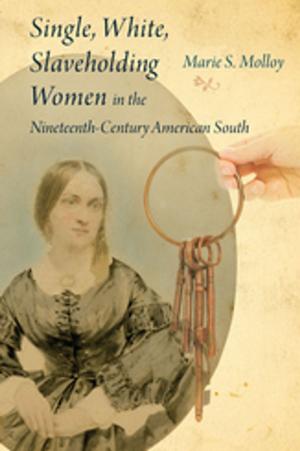Deadly Censorship
Murder, Honor, and Freedom of the Press
Nonfiction, Social & Cultural Studies, Political Science, Government| Author: | James Lowell Underwood | ISBN: | 9781611173000 |
| Publisher: | University of South Carolina Press | Publication: | December 15, 2013 |
| Imprint: | University of South Carolina Press | Language: | English |
| Author: | James Lowell Underwood |
| ISBN: | 9781611173000 |
| Publisher: | University of South Carolina Press |
| Publication: | December 15, 2013 |
| Imprint: | University of South Carolina Press |
| Language: | English |
On January 15, 1903, South Carolina lieutenant governor James H. Tillman shot and killed Narciso G. Gonzales, editor of South Carolina’s most powerful newspaper, the State. Blaming Gonzales’s stinging editorials for his loss of the 1902 gubernatorial race, Tillman shot Gonzales to avenge the defeat and redeem his “honor” and his reputation as a man who took bold, masculine action in the face of an insult. James Lowell Underwood investigates the epic murder trial of Tillman to test whether biting editorials were a legitimate exercise of freedom of the press or an abuse that justified killing when camouflaged as self-defense. This clash—between the revered values of respect for human life and freedom of expression on the one hand and deeply engrained ideas about honor on the other—took place amid legal maneuvering and political posturing worthy of a major motion picture. One of the most innovative elements of Deadly Censorship is Underwood’s examination of homicide as a deterrent to public censure. He asks the question, “Can a man get away with murdering a political opponent?” Deadly Censorship is courtroom drama and a true story. Deadly Censorship is a painstaking recreation of an act of violence in front of the State House, the subsequent trial, and Tillman’s acquittal, which sent shock waves across the United States. A specialist on constitutional law, James Lowell Underwood has written the definitive examination of the court proceedings, the state’s complicated homicide laws, and the violent cult of personal honor that had undergirded South Carolina society since the colonial era.
On January 15, 1903, South Carolina lieutenant governor James H. Tillman shot and killed Narciso G. Gonzales, editor of South Carolina’s most powerful newspaper, the State. Blaming Gonzales’s stinging editorials for his loss of the 1902 gubernatorial race, Tillman shot Gonzales to avenge the defeat and redeem his “honor” and his reputation as a man who took bold, masculine action in the face of an insult. James Lowell Underwood investigates the epic murder trial of Tillman to test whether biting editorials were a legitimate exercise of freedom of the press or an abuse that justified killing when camouflaged as self-defense. This clash—between the revered values of respect for human life and freedom of expression on the one hand and deeply engrained ideas about honor on the other—took place amid legal maneuvering and political posturing worthy of a major motion picture. One of the most innovative elements of Deadly Censorship is Underwood’s examination of homicide as a deterrent to public censure. He asks the question, “Can a man get away with murdering a political opponent?” Deadly Censorship is courtroom drama and a true story. Deadly Censorship is a painstaking recreation of an act of violence in front of the State House, the subsequent trial, and Tillman’s acquittal, which sent shock waves across the United States. A specialist on constitutional law, James Lowell Underwood has written the definitive examination of the court proceedings, the state’s complicated homicide laws, and the violent cult of personal honor that had undergirded South Carolina society since the colonial era.















